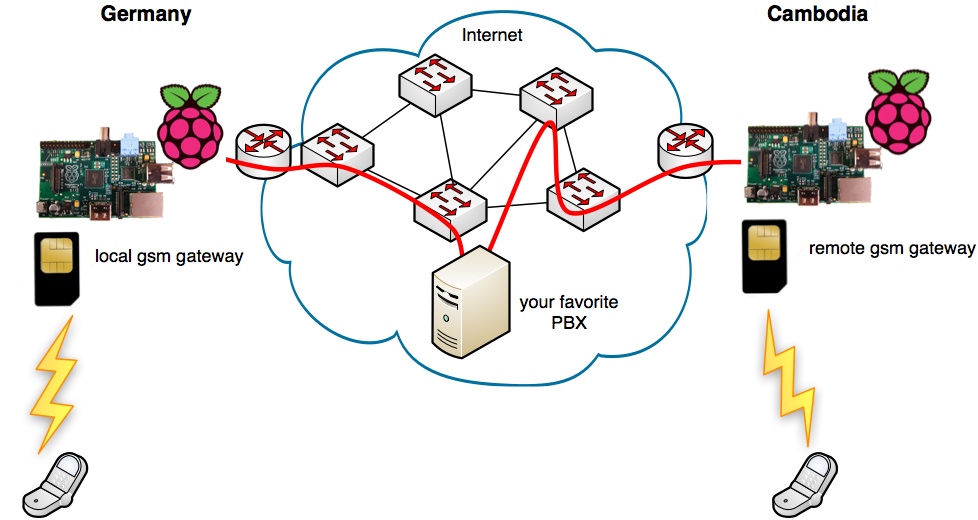| If you travel a lot, you’ll be used to absurd roaming charges when you use your mobile phone. But sometimes your phone’s an absolute necessity – those of us at the Foundation can’t really go overseas for work or for holiday without paying those charges, because we need to be in touch with the office and with a lot of other people around the world who need to talk about things Pi. (And we like to be able to phone our mothers.) Holger Leusch, Benjamin Reichel and Karina Hochstein have found themselves with a similar problem. Worse still, Holger travels to Cambodia a lot, and his German phone provider doesn’t even have a roaming agreement with any of the Cambodian telcos, so he’s not able to use his phone there at all. He found VoIP unusable in Cambodia, with patchy calls, lousy bandwidth, delays and dropouts. Like us, he needed to be in constant touch with his office. Enter (you knew this was coming, didn’t you?) the Pi. Many of those in Holger’s position would look into buying a SIP-based GSM gateway. GSM gateways are expensive things: Holger’s research found that a single GSM port (and you’ll need two, one at each end) was priced between €200 and €400. “For this to pay off, I would have to make a whole lot of phonecalls.” So he, Benjamin and Karina built their own, using a Pi running RasPBX; a Huawei dongle for 3G; a Chan dongle which works as an Asterisk channel driver; and a USB modeswitch. The whole kit came to €75. Holger says:
Please be aware that in some countries, telecoms law around GSM gateways is a bit fuzzy. In the UK, Ofcom says:
Basically, you can build a gateway yourself in the UK – but woe betide you if you try to sell or lease one. The mobile network operators sometimes take this even further (for reasons which you might, when you consider all the lovely money that results from those roaming charges, think to be a bit…venal): for example, if Vodaphone suspects you’re using one of its sim cards in a GSM gateway it says it will disable the card. So be sure to research what the local rules are carefully before you implement something similar yourself. You can read more about Holger, Benjamin and Karina’s setup at Carrier Connect Shout Out.
|
A Semi-automated Technology Roundup Provided by Linebaugh Public Library IT Staff | techblog.linebaugh.org
Wednesday, April 10, 2013
Raspberry Pi GSM gateway
Subscribe to:
Post Comments (Atom)


No comments:
Post a Comment